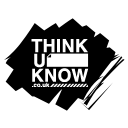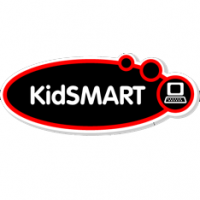Children
What is wellbeing and why is it so important?
The Department for Education (DfE) recognises that “in order to help their pupils succeed, schools have a role to play in supporting them to be resilient and mentally healthy”. Here at Cheddar Grove Primary School we embrace a whole school approach where all staff value and recognise the need to promote positive mental health and well-being in every child and adult. We place great importance on developing the whole child academically, socially and emotionally. The skills needed throughout life can be taught and learnt at any age; all aspects of a child’s experience in and out of school contribute to their personal and social development and we feel that it is essential that we share this role with parents, carers and families.
All of the staff at Cheddar Grove Primary School play a fundamental role in the well-being of our pupils and their families.
How do we provide wellbeing support at Cheddar Grove Primary School?
- Signposting pupils and families to appropriate support, agencies and professionals outside of school.
- Individual work and group interventions for pupils around issues such as;
- Behaviour
- Self-esteem
- Anger management
- Bereavement
- Family breakdowns
- Anxiety
- Social communication
- Staff training on mental health, safeguarding and protecting vulnerable children.
We have a proactive approach to supporting our children and their families, including:
- A team of trained Safeguarding Leads and a Safeguarding Governor
- Teaching assistants who support specific, emotionally vulnerable children
- Small group interventions for groups to develop social skills, self-esteem and emotional literacy
- PSHE Scheme that promotes a ‘mindfulness’ approach to lessons
- Whole school assembly themes to promote and support SEMH (Social Emotional Mental Health)
- Personal and social education lessons and circle time sessions in all year groups
- A comprehensive range of health and sporting activities across the curriculum and in after-school clubs.
Mental Health
Healthy inside and out
Understanding how to look after our bodies and minds is crucial for our wellbeing. In the UK, 1 in 9 children aged 5-15 experience mental health difficulties. These can include depression, anxiety and conduct disorder, and are often a direct response to what is happening in their lives.
In this section, you will find a links to resources to support positive mental health, as well as information about common mental health difficulties and links to sources of advice and support
How to support your child's mental health
Anxiety
Signs to look out for in your child are:
- Finding it hard to concentrate
- Not sleeping, or waking in the night with bad dreams
- Not eating properly
- Quickly getting angry or irritable, and being out of control during outbursts
- Constantly worrying or having negative thoughts
- Feeling tense and fidgety, or using the toilet often
- Always crying
- Being clingy
- Complaining of tummy aches and feeling unwell.
For more information please see the advice from the NHS on anxiety in children and the expert parents' guide to childhood anxiety by Rachael Sprague.
Depression
- Sadness, or a low mood that doesn't go away
- Being irritable or grumpy all the time
- Not being interested in things they used to enjoy
- Feeling tired and exhausted a lot of the time
Your child may also:
- Have trouble sleeping or sleep more than usual
- Not be able to concentrate
- Interact less with friends and family
- Be indecisive
- Not have much confidence
- Eat less than usual or overeat
- Have big changes in weight
- Seem unable to relax or be more lethargic than usual
- Talk about feeling guilty or worthless
- Feel empty or unable to feel emotions (numb)
- Have thoughts about suicide or self-harming
- Actually self-harm, for example, cutting their skin or taking on overdose
For more information please see the coping with your low mood poster (Pdf)
Getting a good night sleep
Getting enough sleep is vitally important. Many effects of a lack of sleep, such as feeling grumpy and not working at your best, are well known, but research also shows that regular poor sleep can put you at risk of serious medical conditions, including obesity, heart disease and diabetes – and it shortens your life expectancy.
It's now clear that a solid night's sleep is essential for a long and healthy life.
Below are the NHS sleep recommendations for primary age children:
- 4 years: 11 hours 30 minutes
- 5 years: 11 hours
- 6 years: 10 hours 45 minutes
- 7 years: 10 hours 30 minutes
- 8 years: 10 hours 15 minutes
- 9 years: 10 hours
- 10 years: 9 hours 45 minutes
- 11 years: 9 hours 30 minutes
Eating a healthy and well-balanced diet
By giving your child a healthy balanced diet, you are ensuring that they are getting all the essential vitamins, minerals and other nutrients that children need for healthy growth and development. Certain nutrients are required for a variety of reasons. Some nutrients worth noting are:
This is just a small list of important nutrients and their uses in the body. You can see that children will need foods that give them all these nutrients for their growth and development.
- Calcium and Vitamin D: Essential for the normal growth and development of bones in children
- Iron: supports normal cognitive development in children
- Vitamin D: Helps support the immune system
- Omega-3 DHA supports normal brain function
For more information please see the Change4Life website.
Why do we have a School's Council?
The School’s Council is an ideal opportunity for pupils to get more involved in the way the school is run. The School Council benefits the whole school, pupil and teachers, because it provides opportunities for pupils to communicate their feelings as well as influence decisions that are made. Councillors develop skills such as confidence, communication and negotiation. It is the responsibility of each Councillor to ensure that they express both their own views of all the other pupils they represent.
Selection Process
At the beginning of each school year each class will discuss the role of the School Councillor and will agree on a set of criteria that the ideal candidate should try and meet, eg: confident to talk in front of others. Any children who are interested in taking on this role then have the opportunity to prepare and present a short pitch to their class explaining why they would make a good Class Council representative. The rest of the class then vote for the person they feel is most suitable for the role. We ask the children to be considerate of each other; if they have had the opportunity to take on this role before then they allow others to also have the opportunity.
Every child is put into a House from half way through Reception until Year 6. This was founded in 2006 and has become a vital part of school life, helping us to create a family atmosphere. Children are awarded House points for pieces of work, behaviour or competitions. These are given by all members of staff who also belong to a House. The Houses are based upon star constellations and are:
- Delphinus – a blue dolphin
- Lupus – a red wolf
- Pegasus – a purple flying horse
- Scorpius – a yellow scorpion
At least once every term there are House assemblies that involve all children in the House from Reception to Year 6 and all the House staff. There is also a House playtime, either before or after the service depending on the rota, where all the children play together. The Reception children are supported by Year 5 using a buddy system where each Reception child is paired with a Year 5 pupil who collects them for assembly and looks after them throughout the session taking them back to their classroom afterwards.
We also have regular House challenges such as inter House quizzes, House rounders and House archery competitions. This is a chance for children to take part and win House points over and above the ones they gain in the classroom. All staff have personalised House points that they can award for a variety of reasons, such as good work, good behaviour, helpfulness, politeness, representing the school at a sports event and so on.
Each House has two House captains who are selected after Easter when they are in Year 5 after making a presentation during a House assembly. Their term of office runs for a year and includes leading services together with the staff, raising and arranging House matters and counting and displaying House point totals each week. These totals accumulate over the term and at the end of term there is a whole school House cup service and the winning House captains are presented with the cup, which will then be displayed for the next term adorned with ribbons in the House colour.
Each House has worked on a motto, chant or song that is a part of every House service and the captains all have t-shirts decorated with the symbol of the House. All Houses also have a House Mascot that the captains bring to House Assemblies.
The House system has made a great impact on Cheddar Grove, it has fostered close liaison between all the key stages and the staff, impacted on conduct and behaviour throughout the school, raised effort and achievement and nurtured a real team spirit to work towards a common goal.
E-Safety is an important part of keeping children safe at Cheddar Grove Primary School . We have extensive security measures in place in school, which are monitored both internally and externally, to help safeguard pupils from potential dangers or unsuitable material.
Any e-safety incidents are recorded and managed appropriately. E-Safety is taught to all pupils explaining and demonstrating how to stay safe and behave appropriately online.
Mr Cox is our E-Safety Lead and should be contacted if you have any concerns:
We can only be successful in keeping children safe online if we work with parents to ensure the e-Safety message is consistent. It is important that parents speak to their children about how they can keep safe and behave appropriately online.
As a school we follows a set of rules called the SMART Rules:
The SMART Rules are explained in the video below:
It’s essential to be realistic - banning the internet or technology will not work and it often makes a child less likely to report a problem. Education around safe use is essential.
E-Safety Top Tips for Parents
- Keep the computer in a family area not in the child's bedroom.
- Use 'child lock' or filter settings on your Web browser to help prevent unsuitable site access by your child.
- Regularly supervise the sites your child is visiting.
- Encourage your child to use their Favourites list to access the sites you have approved to prevent accidental entry to unsuitable sites.
- Discourage your child from using social Networking sites e.g. MSN, Facebook, Bebo etc. to keep them safe from cyber bullying.
- Teach your child to switch the monitor off or close the laptop lid, then fetch or tell you if something unsuitable appears on the screen. This is what we do in school.
- Agree with older children what sites they are allowed to access.
- Keep all personal details private and be aware of stranger danger.
- Above all, encourage your child to talk to you about the web sites and electronic devices they are using at home and school.
Social Networking
One of the fastest growing areas of internet use today is social networking. There are over 3,000 social networking sites on the internet. This is changing the way that we communicate. On most of these sites, it is incredibly easy to communicate with our friends, in many cases, sharing lots of personal information and photographs.
These common social network sites all have age limits:
- Facebook, Snapchat, Twitter, Instagram, TikTok and Skype have an age limit of 13.
- MySpace set their limit at 14.
- YouTube requires account holders to be 18, but a 13-year-old can sign up with a parent's permission.
Keep Your Child Safe on TikTok
There are some things to remember when you are surfing the internet:
- Treat your password like your toothbrush - keep it to yourself!
- Keep your home address, your phone number or email address off the internet, MSN and chat rooms.
- Learn to report someone who is behaving badly.
- Save the evidence - learn to save emails or on-line conversations.
- Don't retaliate or reply.
- Always respect others - think carefully about what you are typing.
- Tell someone you trust if you see something that worries or upsets you.
- Remember what you have learned in school - use that at home.
Search engines
Please note that no search engine is ever 100% safe but below provides some links to some “safer” search engines:
Research searching
Google offers a safer search option for children searching on the Internet. You can find out how to do this by downloading the instructions at the bottom of the page.
Image searching
Gaming
When children are accessing games via Xbox LIVE, privacy settings can be set up. To read more, click here.
Websites for more information
Please click on the icon to go to the relevant site

CEOP (The Child Exploitation and Online Protection Centre) delivers a multi-agency service dedicated to tackling the abuse and exploitation of children in the real and ‘e’ world. Often it is referred to as an online 999. By clicking on the button, young people and parents can get advice on a range of issues such as viruses, hacking and dealing with bullying online.
Vodafone have produced a Digital Parenting Magazine which informs parents about the various technologies children are accessing today. There is information on Facebook settings, Xbox 360 settings, Blackberry settings, jargon busting and many more 'How to Guides'. They are well worth a read and some are attached below for you to download.

The “Thinkuknow” website is brought to you by the Child Exploitation and Online Protection (CEOP) centre.

Kidsmart gives you lots of advice on how to stay safe online.
New e-Safety Portal for Parents and Schools – Internet Matters
Internet Matters is a new online portal designed for parents to access simple, easy and practical advice about online safety for their children, right through from pre-school to teens. It provides tips on protecting children from online grooming, cyberbullying, privacy andidentity theft and inappropriate content. Internet Matters is a not-for profit organisation set up by BT, Sky, TalkTalk and Virgin Media.
ParentINFO is a collaboration between ParentZone and CEOP. There are useful guides and articles on helping your child stay safe online.
Stop, Speak, Support - Cyberbullying guidance for kids | Internet Matters
New code helps children tackle cyber-bullying. Created by young people for young people, the code offers simple steps to take positive action to deal with cyber-bullying
Childnet - An international charity supporting children and parents and carers to develop a safe and great internet for children
Bullying UK - Information and advice about bullying for children, parents and schools.
Kidscape - An organisation which helps to prevent bullying and child abuse.

